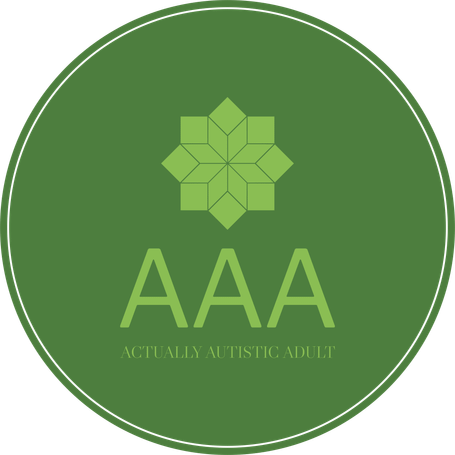Terminology of the Neurodiversity movement
The autistic community, like any other minority community, is often ignored and spoken over. There seems to be a myth that autistic people are unable to speak for themselves (and I don't mean people who communicate non-verbally or who experience periods where they are non-verbal or selectively mute).
Person first language (e.g. person living with arthritis or person living with diabetes) is the preference for many (medical) conditions, but the majority of autistic people reject this. In fact, we feel minimised and invalidated when people refer to us as "people with autism" because autism is at the very core of who we are. It affects every single aspect of our life and it is not something that has been added on at some stage of life, nor is it something that can be medicated or treated away (I'm looking at you, bleach-drink proponents). We are autistic, it is who we are, not something we have. The only exception is a grammatical one; those of us who have been diagnosed with Asperger's may say we "have" Asperger's because that's how language works. We are still autistic.
Below is a small glossary of terms. If you have any questions or suggestions for this page please use the contact form to get in touch.
Allistic = A person (or people) who are not autistic.
Autistic = A person (or people) who are autistic.
Neurodivergent = A person (or people) who have a neurological difference compared to the majority of the population. It means our brains work differently. People who are neurodivergent may have one or more of the following conditions (this list is not exhaustive): PTSD, Parkinson's, Epilepsy, Sensory Processing Disorder (SPD), Dyslexia, Dyspraxia, be a Stroke survivor.
Neurodiverse = A word to describe a group of people who all have different neurologies.
Neurotypical = A person (or people) who are of the dominant neurotype, i.e. they have no neurological or neurodevelopmental conditions and their brains work in the "conventional" way.
We need your consent to load the translations
We use a third-party service to translate the website content that may collect data about your activity. Please review the details in the privacy policy and accept the service to view the translations.
